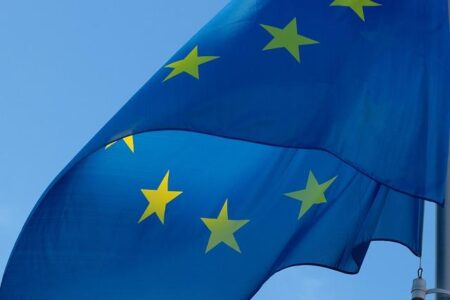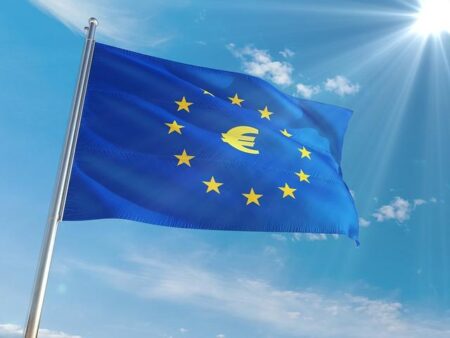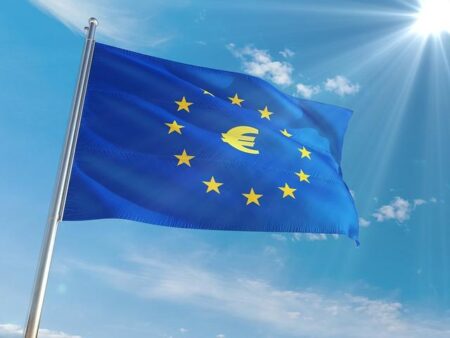Exclusive: France and Italy are joining forces to push for a delay in the final vote on the Mercosur trade deal, sparking urgent debates over its potential environmental and economic impacts, Reuters sources reveal
Browsing: European Union
France is now pushing to delay the EU-Mercosur trade deal, sparking urgent concerns over environmental safeguards and agricultural protections. This surprising move throws a major wrench into the ratification of the highly anticipated agreement
Italy has now joined Belgium in opposing the EU’s plan to use frozen Russian assets to finance Ukraine’s reconstruction. This move highlights deepening divisions within the bloc as tensions rise over the best way to manage these contentious funds
The EU has decisively dismissed Russia’s lawsuit against Euroclear, calling it “speculative” and completely unfounded. Standing firm, the bloc rejects all claims concerning frozen Russian assets, strengthening its legal stance amid escalating geopolitical tensions
The EU is racing to finalize plans by Friday for a sweeping, long-term freeze on Russian central bank assets, Reuters reports, ramping up financial pressure amid escalating geopolitical tensions
Berlin has firmly pushed back against US criticism of Europe’s policies, proudly celebrating the continent’s sovereignty and independent decision-making. The German government calls for mutual respect and a fresh commitment to strengthening transatlantic bonds
Belgium has rejected the EU’s proposal to use frozen Russian assets to fund aid for Ukraine, citing significant legal and ethical concerns. This move introduces fresh complications in the effort to support Kyiv amid the ongoing conflict
The EU is reigniting its stalled China de-risking strategy, boldly aiming to reduce economic dependence amid rising geopolitical tensions. This decisive action underscores Brussels’ dedication to forging diverse trade partnerships and creating stronger, more resilient supply chains
Morocco and Spain are gearing up for their 13th high-level meeting, promising to strengthen their partnership, ignite economic growth, and address critical regional security issues, officials confirmed Tuesday
Italy has once again committed to boosting Europe’s role within NATO, emphasizing the vital need for closer cooperation and unwavering solidarity among member states to confront emerging and ever-changing security challenges
Italy’s EU-harmonised Consumer Price Index (CPI) for November dipped to 1.1% year-on-year, coming in below expectations, according to TradingView data. This cooling trend signals a welcome easing of inflationary pressures as the year winds down
Italy’s competition authority is intensifying its investigation into WhatsApp’s AI policies, delving further into potential antitrust breaches and data privacy concerns. This development underscores the increasing regulatory pressure on tech giants throughout Europe
Italy’s bold Belt and Road Initiative deal with China marked a daring economic leap, igniting fierce debates over sovereignty and strategic risks. The Atlantic Council explores the far-reaching consequences and Italy’s revamped China policy in its latest analysis
The EU is ramping up its trade strategy toward China, fueled by growing worries over market access and fair competition. This shift echoes Germany’s strategic pivot, signaling a bold and more determined European stance
Europe faces mounting pressure as the US issues a bold ultimatum on Ukraine support, igniting a wave of urgent diplomatic activity. Allies scramble to coordinate their strategies in the face of escalating geopolitical tensions, Bloomberg reports
Brussels has taken a bold stand by launching infringement proceedings against Spain, Germany, and Latvia for failing to fully comply with EU firearms regulations. This decisive move underscores the bloc’s steadfast commitment to tightening gun control measures across its member states
Europe’s Palestine policy finds itself at a fascinating crossroads, wrestling with the challenge of honoring international law while championing Palestinian efforts. This delicate balance ignites lively discussions about Europe’s genuine influence in steering the path toward lasting peace in the Middle East
Germany is leading the charge to secure the UK’s involvement in the EU’s colossal €150 billion defense fund, aiming to strengthen European security cooperation despite lingering Brexit tensions, Bloomberg reports
Germany champions the UK’s involvement in the EU’s €150 billion defense fund, emphasizing that united strength is key to boosting security. This marks an exciting new chapter in post-Brexit defense cooperation between Brussels and London
Germany is championing the creation of an African “return hub” to streamline migrant repatriations, yet Greece raises strong doubts about the plan’s feasibility and fairness, Euractiv reports




















